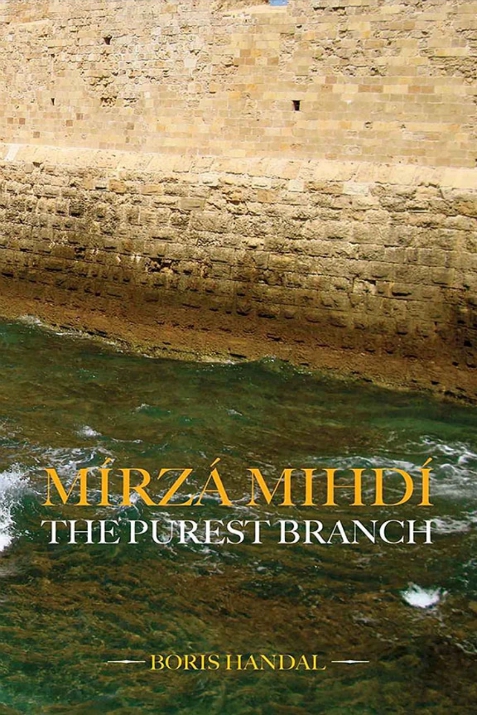Highlighting Australia
- As a proudly Australian initiative, we’re excited to showcase a collection of Australian stories, music, tributes and more.

Join activities, celebrations, study groups, spiritual empowerment and education programs for young people, and more.
Baha’i beliefs address essential spiritual themes for humanity’s collective and individual advancement. Learn more about these and more.


We’d like to share with you a little about a book titled Mirza Mihdi: The Purest Branch in honor of the 150th anniversary of his passing. Written by Boris Handal, this biography tells the dramatic story of Mirza Mihdi, the beloved son of Baha’u’llah, who fell from a skylight in the roof of the prison where he, his family and many other Baha’is were imprisoned. He was severely and mortally injured. When Baha’u’llah offered to save his life, Mirza Mihdi chose instead to sacrifice it so that the doors of the prison might open and those who longed to see Baha’u’llah could attain their hearts’ desire.
During their imprisonment in Akka (in present-day Israel), Mirza Mihdi often spent his evenings on the roof top, immersed in prayer and meditation, where one could breathe cleaner air, as well as watch and listen to the sound of the waves crashing in the bay. After twilight, Mirza Mihdi would count his steps in order to avoid the open skylight but one evening he was so enraptured by his prayers that he stumbled, lost his balance and fell onto a wooden crate on the floor below.
In the last hours of his life, Mirza Mihdi spoke with Baha’u’llah in private. And while we do not know everything that was said, we do know that Baha’u’llah offered to save him. However Mirza Mihdi wished that pilgrims might be able to attain Baha’u’llah’s presence. At that time, many of the Baha’i pilgrims who travelled on foot to see Baha’u’llah had to content themselves with the sight of His hand waving a handkerchief from the prison’s window.
At the tender age of 22, Mirza Mihdi passed away on 23 June, 1870 — 150 years ago to this day.
While Handal’s book follows a chronology of Mirza Mihdi’s short life and what occurred after his passing by drawing on a wide array of historical sources, it is primarily a story of sacrifice. In its foreword, Moojan Momen explains:
Although we will never fully understand the workings of these hidden spiritual processes, they operate just as surely as the laws of science. Shoghi Effendi has delineated so many instances of this phenomenon of alternating crises and victories in the history of the Baha’i Faith that we can be sure of the potency and effectiveness of this mechanism. In one analogy its working has been likened to a seed that must first sacrifice itself and be annihilated in order for the seedling to sprout from it and eventually become a mighty oak […] Only the act of sacrifice carried out with purity and sincerity can galvanize the spiritual energy that overcomes all obstacles and propels the religion forward to the next stage in its development.
It is in the nature of the mystery of sacrifice that those who sacrifice themselves are often not aware of, or underestimate, the full extent of the spiritual power they are unlocking. And this seems to have been the case with the act of sacrifice that forms the heart of the subject matter of this book.
He concludes his foreword:
Of course, this aim of the spiritual regeneration of individual human beings and uniting the peoples of the world has not occurred yet and so the spiritual energies released by the sacrifice of Mirza Mihdi’s act of sacrifice are still at work today, inspiring individual Baha’is to acts of sacrifice to bring this about and drive the process forward.
While the anniversary of Mirza Mihdi’s passing seems a fitting time to study and draw inspiration from this book, it is worth reading at any time. You can purchase a copy here on Amazon.
If you’d like to know more about MIrza Midhi, you might be interested in this online presentation by the author himself, Boris Handal: Mirza Mihdi: The Purest Branch – An Online Presentation with Dr. Boris Handal
Dr. Boris Handal is a Professor of Education at the University of Notre Dame, Australia, and his publications comprise of over 100 conference and journal papers, books, and book chapters published in Australia, the United States, Europe, Latin America, Africa and Southeast Asia. Dr. Handal has also published several books in the field of 19th Century Persian history and culture.
Lastly, you may also be interested to hear singer/songwriter Grant Hindin-Miller recount some details of Mirza Mihdi’s life and sing a song abut him in this “Baha’i on Air” video: Grant Hindin-Miller Sings about Mirza Mihdi
"*" indicates required fields

We recognise their continuing connection to land, waters and community. We pay our respects to Aboriginal and Torres Strait Islander people and their cultures; and to elders both past and present.
The views expressed in our content reflect individual perspectives and do not represent authoritative views of the Baha’i Faith.

Visit the site of the
Australian Baha’i Community
and the Baha’i Faith Worldwide
Notifications